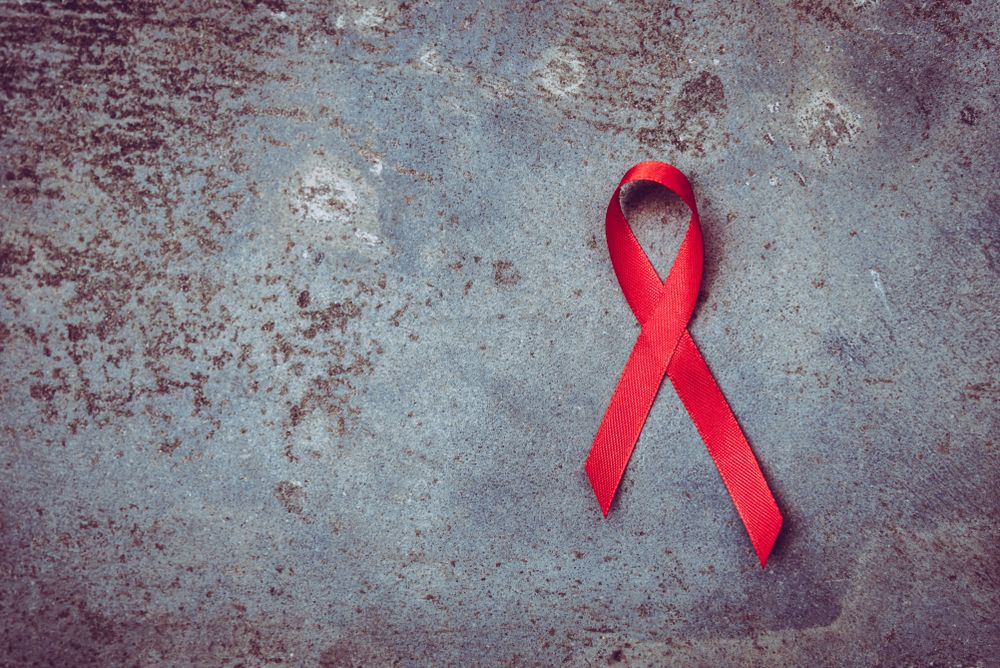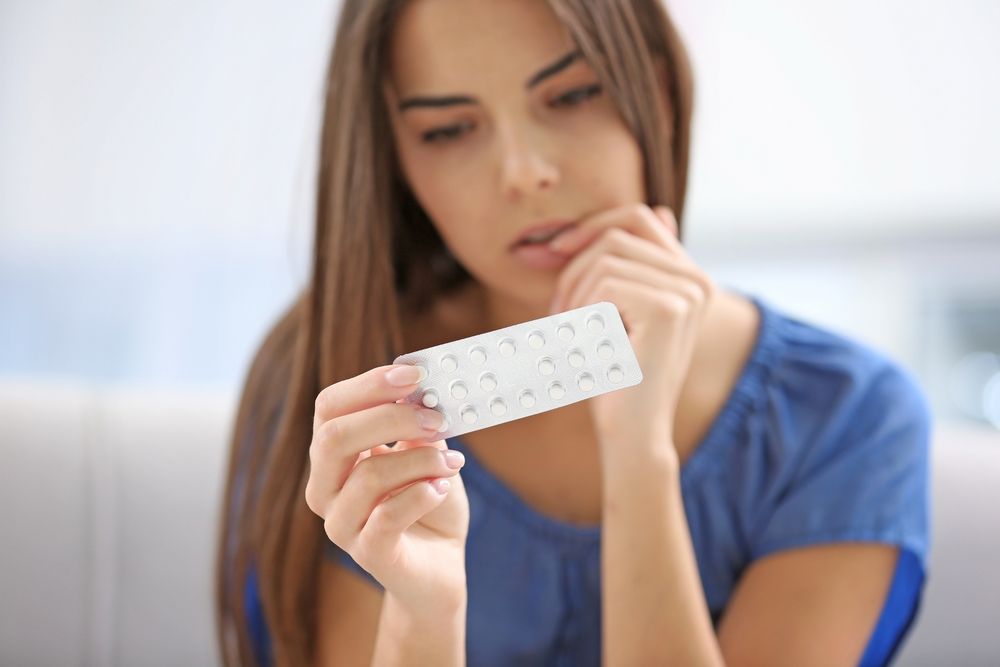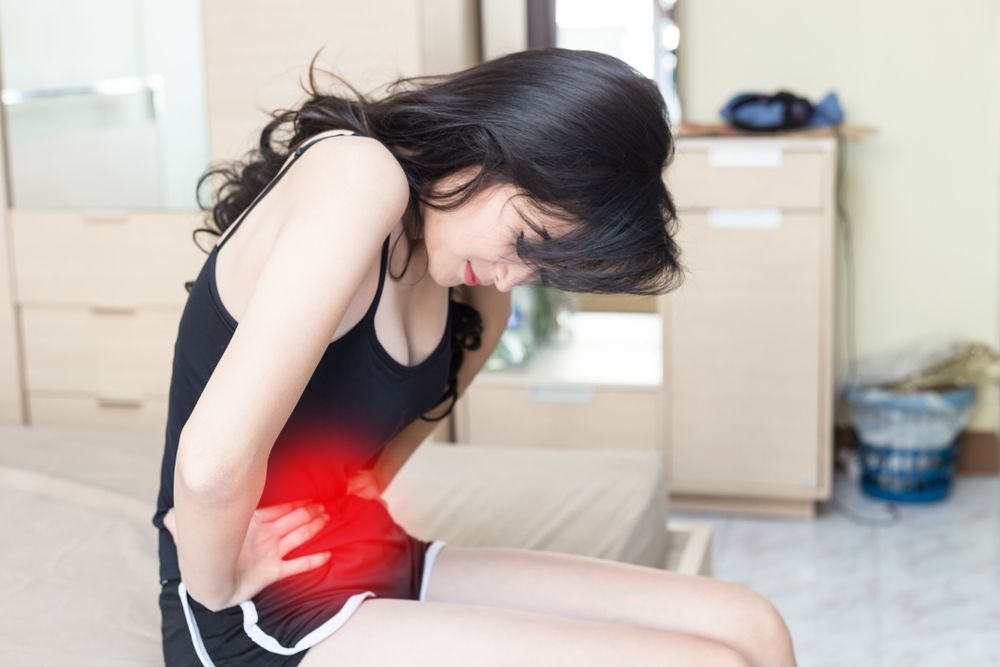Menopause, which is characterized by a lack of menstruation for 12 consecutive months, is a normal part of every woman’s life. (Learn More: What Is Menopause?)
It indicates that a woman’s body has decreased the production of the sex hormones estrogen and progesterone. (Learn More: How Does Menopause Affect the Body?)
Some women deal with symptoms that may change the quality of their life for a while. (Learn More: What Are the Treatments for Symptoms of Menopause?)
Thankfully, medical treatments and some lifestyle adjustments can help alleviate menopause symptoms. (Learn More: Are There Natural Remedies for Menopause Symptoms?)
Perimenopause and Menopause
Menopause develops slowly — women’s bodies begin transitioning during the perimenopausal stage, with the average age of onset between 45 and 55. However, some women may experience the first signs of change during their mid- to late-30s.
Women who have undergone a hysterectomy may experience menopause early but can control symptoms by taking supplemental hormones under medical supervision.
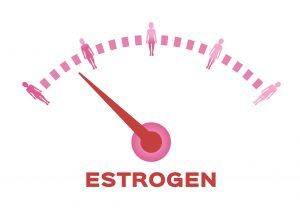
During menopause, women experience a decline in the amount of estrogen in their bodies. Estrogen serves many purposes, including:
- Regulating sex characteristics, such as the development of breasts, and armpit and pubic hair.
- Controlling menstruation and the reproductive system.
- Preparing the uterus for implantation of an embryo.
- Improving skin quality.
- Regulating the production of cholesterol in the liver to protect the heart.
- Increasing bone density to help prevent fractures.
During menopause, levels of another crucial hormone, progesterone, also fall.
Progesterone is a hormone that aids in regulating the menstrual cycle. It thickens the uterine lining, preparing it for egg implantation. It is also thought to influence your immune system.
When hormone replacement therapy is given to address menopausal symptoms, it is generally a combination of estrogen and progesterone.
Symptoms of Menopause
Menopause comes with an array of symptoms, including: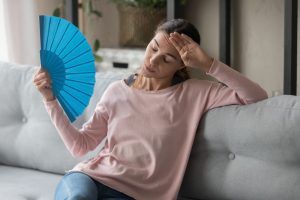
- Hot flashes
- Irregular menstrual cycles
- Sleep issues, such as insomnia
- Changes to libido (sex drive)
- Moodiness
- Night sweats
- Thinning skin
- Difficulty sleeping
- Incontinence
Not all women experience these symptoms, and the severity of symptoms can vary greatly.
Your doctor may perform an Estradiol blood test to confirm menopause. The test confirms:
- If menstruation has stopped.
- If you are responding to hormone therapy (if applicable).
Results of 0 to 30 pg/mL are within the normal range for postmenopausal women.
Is There Any Treatment or Cure for Menopause Symptoms?
Menopause is a natural part of aging for women. Many women feel they do not need treatment to address menopause. Symptoms may come and go, and in some cases, they may not affect the quality of life in noticeable ways.
If your symptoms are severe, you should talk to your doctor. They can prescribe medication, begin hormone replacement therapy, or recommend lifestyle changes.
Treatments for menopausal symptoms include:
- Over-the-counter (OTC) medications. These include water-based lubricants that lessen vaginal dryness during sex.
- Topical hormone therapy. Rings, tablets, and estrogen creams are available if OTC medication does not relieve symptoms.
- Hormone replacement therapy, also known as estrogen replacement therapy. Medications in this category replace a hormone that the body typically produces. Hormone replacement therapy is available in two primary forms.
-
- Estradiol transdermal patches. These are sold under the brand names, including Alora, Climara, Menostar, and Vivelle. Transdermal estradiol patches are often prescribed for women who deal with vaginal itching, burning, and dryness, as well as hot flashes. They may also be prescribed to prevent osteoporosis, a common disease in women with menopause characterized by fragile bones and an increased risk of fracture.
-
-
- Side effects may include headaches, hair loss, mood changes, coughing, pain during menstruation, gas, and vaginal discharge.
-
-
- Topical gels containing estradiol. These are sold under the brand names EstroGel, Divigel, Elestrin, and Evamist. Topical forms of estradiol may be sold as a gel, spray, or mist, and work by reducing menopause symptoms, such as hot flashes and vaginal dryness or itchiness.
The gel form of topical estradiol is known to be flammable, so it is vital to stay away from sources of flames or heat until the gel is completely dry. Use the gel at about the same time every day, and reapply if you shower, go into a steam room (sauna), or swim.
- Topical gels containing estradiol. These are sold under the brand names EstroGel, Divigel, Elestrin, and Evamist. Topical forms of estradiol may be sold as a gel, spray, or mist, and work by reducing menopause symptoms, such as hot flashes and vaginal dryness or itchiness.
- Low-dose hormonal birth control. Most useful during perimenopause, low-dose pills typically contain estrogen and progestin, though some contain just one hormone. They can help with mood swings, hot flashes, and vaginal dryness or burning sensations.
Women who smoke may need to avoid birth control. Smoking could increase the risk of blood clots or high blood pressure.
- Antidepressants. Numerous studies have found antidepressants such as venlafaxine to be as effective as hormone replacement therapy in treating hot flashes and night sweats caused by menopause. While antidepressants have not been shown to be as effective as estrogen, they are an alternative for women who do not want to take hormones.
Natural Remedies to Ease Symptoms
OTC or prescription medication and hormone replacement therapy is not for everyone; various natural remedies have also been known to ease common symptoms of perimenopause and menopause.
- Acupuncture: Health insurance may cover acupuncture. Research shows that acupuncture sessions may relieve women of menopause-related hot flashes.
- Yoga: By promoting relaxation and stretching, yoga can help women manage mood changes experienced during menopause.
- Mindful breathing exercises: Mindfulness is known to improve concentration and may help women manage hot flashes and anxiety.
- Healthy eating: Consuming enough calcium and vitamin D is essential to combat bone density loss from menopause. Decreasing caffeine intake can help reduce hot flashes, while probiotics can reduce the risk of yeast infections.
- Exercise: Beneficial at any age, lifting weights may improve bone density and reduce the risk of fractures.
Frequently Asked Questions
What is menopause?
Menopause is a natural stage in a woman’s life. It is characterized by 12 months of no menstrual cycle and the inability to become pregnant. Although the average age of onset is between 45 and 55, some women enter menopause a bit earlier.
Other women may have early menopause if they have a hysterectomy.
How does menopause affect the body?
Along with hot flashes, irregular periods, and changes in libido, some women report changes in their mood and ability to sleep. Lack of estrogen and progesterone also causes the skin to thin and weight to fluctuate.
It becomes easier to gain fat and lose both muscle mass and bone density. As such, women undergoing menopause should take precautions to ensure they receive enough calcium and vitamin D through their diet or supplements.
Are there any treatments for menopause symptoms?
Yes, treatments for menopausal symptoms include hormone replacement therapy, and estradiol gels or patches. Patients may also be able to use a low-dose form of birth control before menopause to control mood swings, vaginal dryness, and hot flashes.
Antidepressants and over-the-counter medications can also soothe some symptoms of menopause. Patients should talk to their doctors about the side effects of each treatment.
Are there natural remedies for menopause symptoms?
Some women may prefer a natural treatment for menopause symptoms, or they may want to complement their treatment with alternative methods.
Although more research is needed, dietary changes, weightlifting, yoga, mindfulness, breathing exercises, and acupuncture have been known to reduce the severity of menopause symptoms.
References
Estradiol Transdermal Patch. (September 2019). Mayo Clinic.
Estradiol Topical. (November 2018). Everyday Health.
Estradiol Blood Test. (September 2018). Medical News Today.
What Is Menopause? (June 2017). National Institutes of Health.
Perimenopause. (May 2019). Mayo Clinic.
Alternatives for Treating Menopause. (July 2018) Healthline.
Natural Alternative Treatments for Menopause. (August 2019). Verywell Health.
Everything You Need to Know About Estrogen. (July 2018). Medical News Today.
Overview of the Female Hormone Progesterone. (May 2019). Verywell Health.
What Are the Signs and Symptoms of Menopause? (June 2017). National Institute on Aging.
Menopause Treatment. (May 2019) Office on Women’s Health.
Are Low-Dose Birth Control Pills Right for You? (January 2019). Healthline.
Treating Menopause with Antidepressants. (June 2018). Healthline.
Effects of Menopause on the Body. (February 2019). Healthline.


